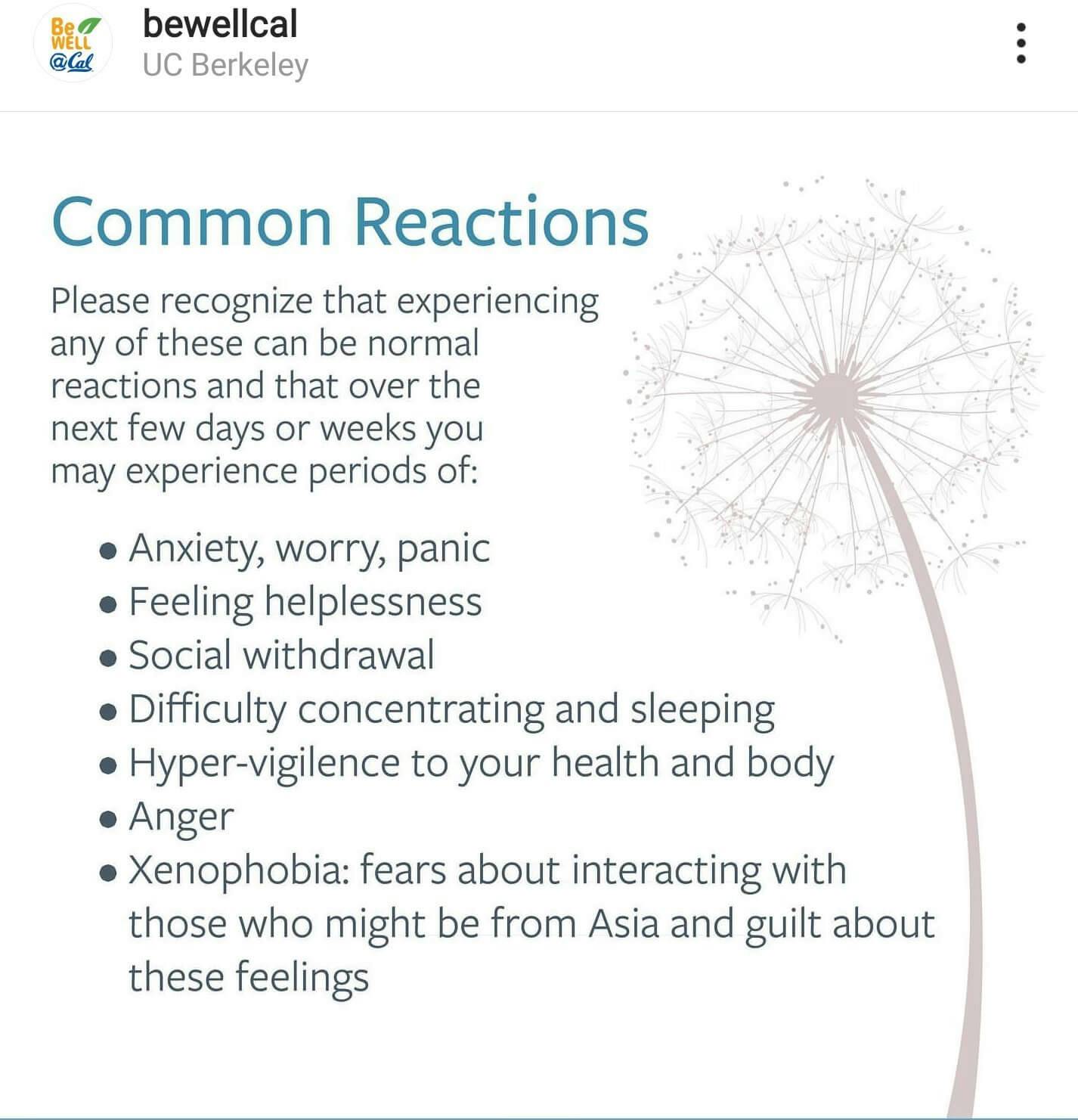The University of California at Berkeley has apologized for an informational graphic posted on its health center’s Instagram account last week.
The now-deleted post listed “normal” reactions to the coronavirus. Followers were outraged when they noticed this list, which included things like “anxiety” and “social withdrawal,” ended with “xenophobia: fears about interacting with those who might be from Asia and guilt about these feelings.”

People were quick to call out the post for being racist.
“Dear @UCBerkeley. Dear friends in academia. Please tell your university administrators that it is NOT ok to normalize or endorse #Xenophobia,” user @ynassef wrote.
Dear @UCBerkeley. Dear friends in academia. Please tell your university administrators that it is NOT ok to normalize or endorse #Xenophobia. UC Berkeley characterizes it as a normal reaction to the #Coronavirus scare!! pic.twitter.com/vgSbzPVPDJ
— Youssef Nassef (@ynassef) February 2, 2020
“Confused and honestly very angry about this Instagram post from an official @UCBerkeley Instagram account,” user @adrienneshih wrote. “When is xenophobia ever a ‘normal reaction?’”
Confused and honestly very angry about this Instagram post from an official @UCBerkeley Instagram account.
— Adrienne Shih (@adrienneshih) January 30, 2020
When is xenophobia ever a “normal reaction”? pic.twitter.com/hH4AgQKluM
“IT’S OK EVERYONE, UC BERKELEY TELLS ME XENOPHOBIA AND WHITE GUILT ARE PERFECTLY “NORMAL REACTIONS” LMAO WTF,” user @WellsLucasSanto wrote.
SOMEONE JUST SENT ME THIS FROM AN OFFICIAL UC BERKELEY IG PAGE. IT’S OK EVERYONE, UC BERKELEY TELLS ME XENOPHOBIA AND WHITE GUILT ARE PERFECTLY “NORMAL REACTIONS” LMAO WTF pic.twitter.com/jf7OpA2rGr
— wells santo (link in melee, not in bio) (@WellsLucasSanto) January 30, 2020
Two days after the original post, U.C. Berkeley posted an apology to its health center’s Twitter and Instagram accounts.
“We apologize for our recent post on managing anxiety around coronavirus. We regret any misunderstanding it may have caused and have updated the language in our materials.”
We apologize for our recent post on managing anxiety around Coronavirus. We regret any misunderstanding it may have caused and have updated the language in our materials.
— UHS at UC Berkeley (@TangCenterCal) January 30, 2020
When the Daily Dot reached out for additional comment, U.C. Berkeley senior communications director Janet Gilmore issued the following statement: “We took down the post on Thursday [January 30]. We regret the post and sincerely apologize for the harm caused.”
According to Time magazine, people are reportedly experiencing more xenophobic incidents, such as “people avoiding them in public spaces, or even confronting them in public about coronavirus.”
“People with a different national, ethnic or religious background have historically been accused of spreading germs regardless of what the science may say,” medical anthropologist Monica Schoch-Spana told Time.
According to the Center for Disease Control, the newly-identified coronavirus saw its first case in Wuhan, China. The disease has since spread to several countries, including the U.S. A total of 17,489 illnesses and 362 deaths have been reported.
READ MORE:


